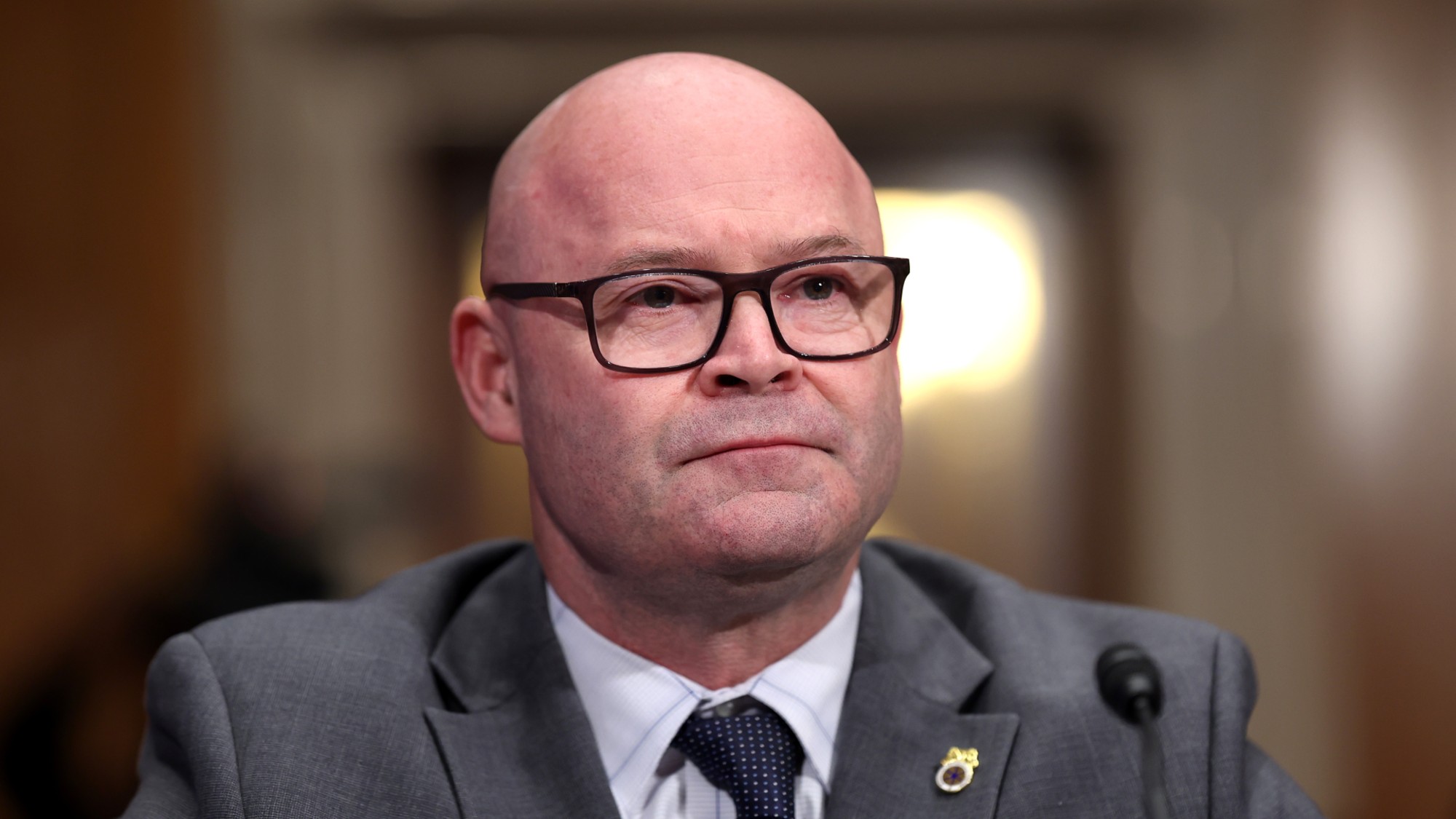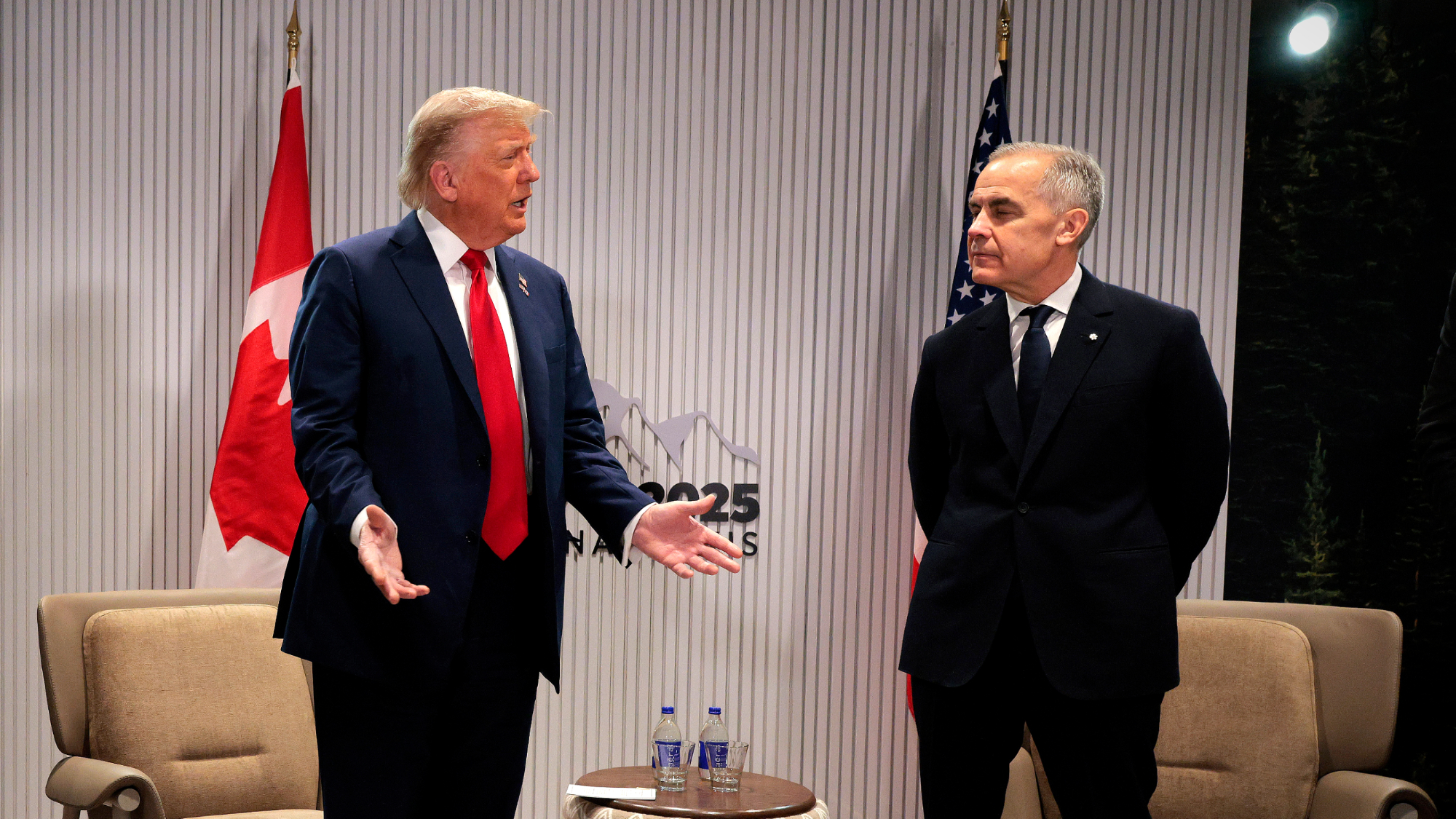Does Canada make assisted suicide too easy?
The controversy over Canada's 'Medical Assistance in Dying' law, explained


A free daily email with the biggest news stories of the day – and the best features from TheWeek.com
You are now subscribed
Your newsletter sign-up was successful
Canada has one of the most liberal assisted suicide laws in the world — but is it too liberal? Officials in the national government have announced they want to delay the implementation of a law that would let people with mental illnesses apply for medically assisted deaths, the National Post reports, after a wave of criticism that the poor and disabled would feel pressure to end their lives. "We are listening to what we are hearing and being responsive to make sure we move forward in a proven way," said Justice Minister David Lametti. What is Canada's law on assisted dying, and what are the concerns about it? Here's everything you need to know:
What is Canada's assisted death policy?
In 2016, the Canadian government passed its "Medical Assistance in Dying" law, known as MAiD. (That was a year after the country's Supreme Court struck down a ban on euthanasia.) The new law limited "the option to the incurably ill, requires medical approval, and mandates a 15-day waiting period," NPR reported at the time. There was a fierce debate about whether the law should be narrow — only for people whose "natural death has become reasonably foreseeable" — or whether it should be more broadly written to include patients with longer-term degenerative diseases. The narrower approach won.
But the narrow approach didn't stay narrow?
In 2019, MAiD's restrictions were invalidated by the Quebec Superior Court in what is known as the "Truchon decision," Trudo Lemmens and Laverne Jacobs write at The Conversation. The case involved Nicole Gladu and Jean Truchon, "two Québec residents who each have physical disabilities that severely restrict their ability to complete daily tasks, remove or reduce significantly their mobility and cause intolerable pain." Even though their deaths weren't medically imminent, they wanted to die. The court agreed that they should be allowed.
The Week
Escape your echo chamber. Get the facts behind the news, plus analysis from multiple perspectives.

Sign up for The Week's Free Newsletters
From our morning news briefing to a weekly Good News Newsletter, get the best of The Week delivered directly to your inbox.
From our morning news briefing to a weekly Good News Newsletter, get the best of The Week delivered directly to your inbox.
So in 2021, Canada revised and expanded the law to allow assisted deaths for people who "have enduring and intolerable physical or psychological suffering that cannot be alleviated under conditions the person considers acceptable" — in other words, the chronically ill or disabled.
What have been the results?
"Through December of 2021, 31,664 Canadians have received assisted deaths," the New York Times reports. More than 10,000 of those deaths were in 2021, a 32 percent increase over 2020. And after the law's expansion in 2021, 224 people died who were not terminally ill.
What would the expanded policy do?
Right now, the law still restricts MAiD patients who have some sort of physical infirmity. But "access to euthanasia was set to broaden in March to people whose sole conditions are mental disorders," BBC News reports, adding that including mental illness as a cause for assisted death "would mean that Canada would have one of the most liberal euthanasia laws in the world." But officials say that depressed or suicidal people wouldn't necessarily be eligible for assisted death. "We're talking about mental disorders that are that are evaluated over a much longer period of time with a greater degree of expertise," Lametti said. "I want to reassure Canadians that if you're thinking about suicide, you should get help."
What are critics saying?
Even before the law's expansion, there was growing criticism of Canada's policy. "Human rights advocates say the country's regulations lack necessary safeguards, devalue the lives of disabled people, and are prompting doctors and health workers to suggest the procedure to those who might not otherwise consider it," The Associated Press reports, adding that there are growing worries that some people choose to die simply because they're poor. One highly publicized story featured a man who applied for assisted death because he couldn't pay for a home. (He later reversed course.)
A free daily email with the biggest news stories of the day – and the best features from TheWeek.com
Criticism has come from beyond the country's borders. In 2021, a trio of United Nations human rights experts expressed concerns that the broader law might create "a social assumption …that it is better to be dead than to live with a disability." American conservatives have increasingly expressed alarm, as well. "Important people … promised Canadians that their rights to autonomy would be expanded," Alexander Raikin writes in The New Atlantis. "But the picture that emerges is not a new flowering of autonomy but the hum of an efficient engine of death."
What are defenders saying?
Dying With Dignity Canada criticized the government's decision to delay the mental illness requirement. "The current exclusion of those with a mental disorder from end-of-life choice is stigmatizing, discriminatory, and unconstitutional, the group said in a series of tweets. "While we acknowledge the concerns shared about the need for more mental health supports across the country, we are equally concerned about those who suffer intolerably from mental disorders and are waiting for the opportunity" to be assessed for assisted death.
More broadly, advocates of the system say it has safeguards in place to prevent abuse of the system. All applicants must be assessed by a physician and a nurse, and all assisted deaths must be reported to the government. "There's no good evidence that the Canadian system is not working well and we do have systems in place to detect when it is not working well," Dalhousie University's Jocelyn Downie told The New York Times. "Relative to the rest of the world, I actually think we have an excellent system."
What's next?
It's not clear how long the newly announced delay of the policy will last. The Society of Canadian Psychiatry wants the expansion to wait until 2024. That will require new legislation to be passed through the Canadian Parliament, The Guardian reports: "To pass any legislation, the governing Liberals would need support from opposition parties."
Joel Mathis is a writer with 30 years of newspaper and online journalism experience. His work also regularly appears in National Geographic and The Kansas City Star. His awards include best online commentary at the Online News Association and (twice) at the City and Regional Magazine Association.
-
 The Olympic timekeepers keeping the Games on track
The Olympic timekeepers keeping the Games on trackUnder the Radar Swiss watchmaking giant Omega has been at the finish line of every Olympic Games for nearly 100 years
-
 Will increasing tensions with Iran boil over into war?
Will increasing tensions with Iran boil over into war?Today’s Big Question President Donald Trump has recently been threatening the country
-
 Corruption: The spy sheikh and the president
Corruption: The spy sheikh and the presidentFeature Trump is at the center of another scandal
-
 House votes to end Trump’s Canada tariffs
House votes to end Trump’s Canada tariffsSpeed Read Six Republicans joined with Democrats to repeal the president’s tariffs
-
 ‘My donation felt like a rejection of the day’s politics’
‘My donation felt like a rejection of the day’s politics’Instant Opinion Opinion, comment and editorials of the day
-
 ‘It’s good for the animals, their humans — and the veterinarians themselves’
‘It’s good for the animals, their humans — and the veterinarians themselves’Instant Opinion Opinion, comment and editorials of the day
-
 Canada joins EU’s $170B SAFE defense fund
Canada joins EU’s $170B SAFE defense fundspeed read This makes it the first non-European Union country in the Security Action for Europe (SAFE) initiative
-
 ‘Security is no longer a function only of missiles and fighter jets’
‘Security is no longer a function only of missiles and fighter jets’Instant Opinion Opinion, comment and editorials of the day
-
 ‘Businesses that lose money and are uncompetitive won’t survive’
‘Businesses that lose money and are uncompetitive won’t survive’Instant Opinion Opinion, comment and editorials of the day
-
 Trump vows new tariffs on Canada over Reagan ad
Trump vows new tariffs on Canada over Reagan adspeed read The ad that offended the president has Ronald Reagan explaining why import taxes hurt the economy
-
 Trump assigns tariffs, delays all except on Canada
Trump assigns tariffs, delays all except on CanadaSpeed Read A 35% tariff on many Canadian goods has gone into effect
